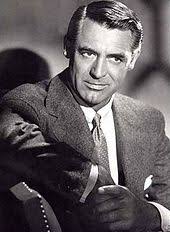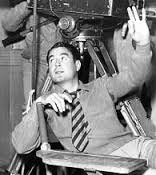It’s been a burden to go through life having an uncanny resemblance to Cary Grant. The great Hollywood star remains an iconic example of the perfect leading man. You can undoubtedly see the resemblance and imagine the confusion.
I’m on the left.


Believe me, it was not easy to be mistaken for the famous movie star.
In his day a lot of guys wanted to be Cary Grant. Even the former Archie Leach said that even he wanted to be the suave persona he portrayed in movies with Katherine Hepburn, Ingrid Bergman and others.
Personal Identity is one of the most fragile of our perceptions. Media researchers remind us that the young–especially girls and young women–are endlessly needled by messages that undermine shaky egos. “I’m not attractive enough” is the generic effect of viewing advertising and other elements of popular culture. It is delivered incessantly, sabotaging a person’s birthright for an intact and resilient self image. Even so the Grant example is a reminder that we easily imagine a form of our idealized selves.
Advertising is an interesting case because we usually don’t usually think of it as a vessel for delivering messages of inadequacy. Ads come in the form of ‘good news’ and upbeat reminders. But those dealing with what the industry calls “personal care products” are filled with remedies to trumped up problems created specifically to sell a product. Ads destabilize a young consumer. They beg an individual to worry about problems they might not have known they had: blemishes, hair that is the wrong color, or a body type that deviates from an idealized norm. In fact, film, advertising and the gatekeepers of media content (especially in fashion, dance and television casting )generally prefer “ectomorph” women who straddle the borderlands of the anorexic.
“Body dysmorphia” begins for some males and females during adolescence. This consuming obsession over appearance affects almost 3 in 100. But much larger percentages have issues accepting their physical appearance. This is all made worse by the ironic fact that our general appearance is a relatively fixed part of ourselves, often getting more attention than the thoughts we utter: aspects of ourselves that are within our control.
When we are young, we often assume that what we offer as our physical selves should be enough to secure our place and our status with our peers. It’s one of the vulnerabilities of youth that we regard our lithe bodies as our best calling card. What else do muscled men or pretty young woman need to offer? A racetrack of a mind or verbal facility might only complicate things.
Soon enough our identities must deepen. Who we “are” must be much more than how we look. For many that takes a degree of self-induced emancipation, as in this personal declaration from comedian Margaret Cho:
I fly my flag of self esteem for all those who have been told they were ugly and fat and hurt and shamed and violated and abused for the way they look and told time and time again that they were ‘different’ and therefore unlovable. Come to me and I will tell you and show you how beautiful and loved you are and you will see it and feel it and know it and then look in the mirror and truly believe it.
